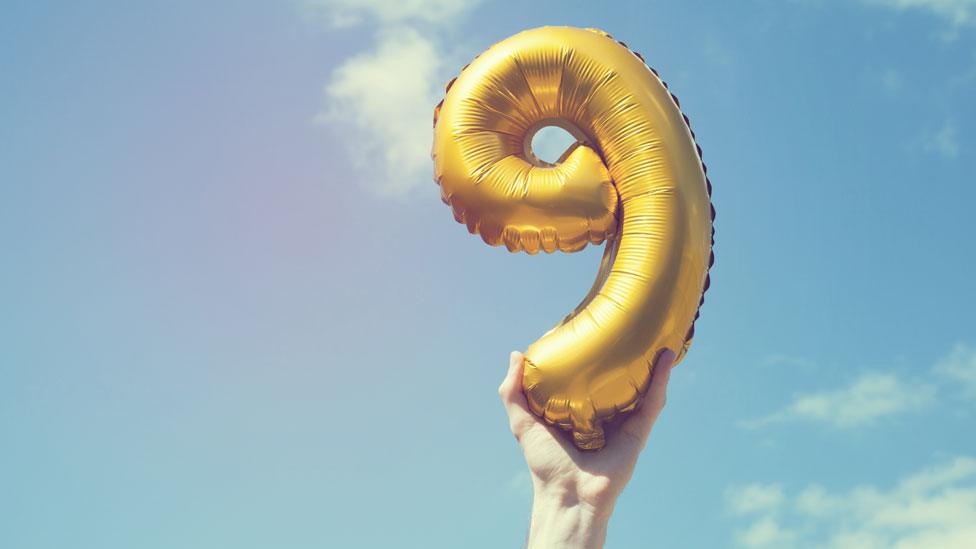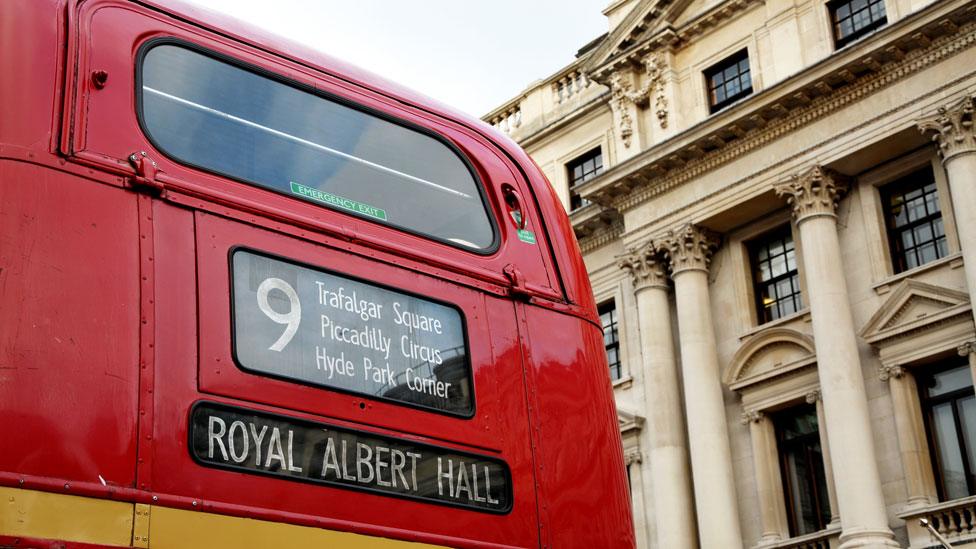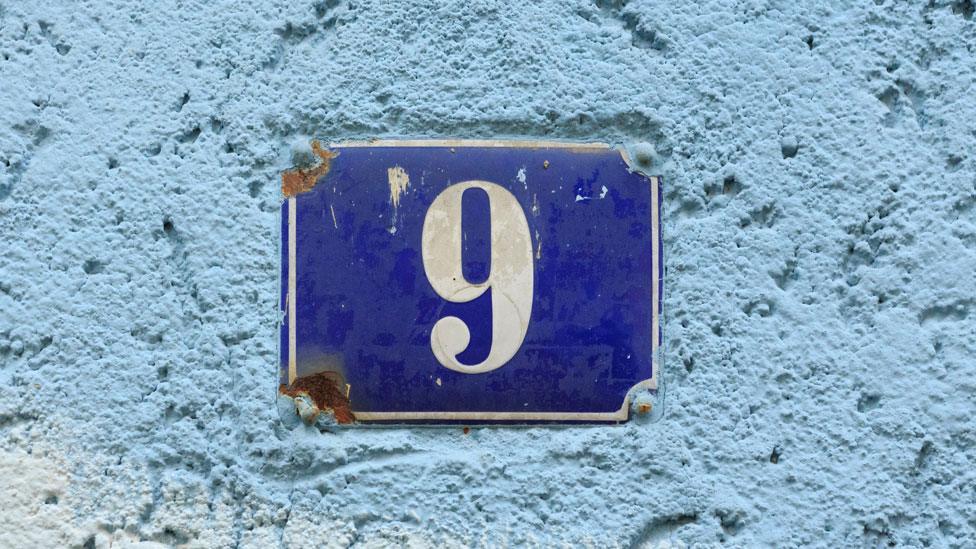Nine things about nine things
- Published

The new GCSE system in England is going to be graded from 9 to 1. But is 9 a counter-intuitive top score? Nine is the nearly-man and woman of numbers - almost, but not quite 10.
But this change in exam grades could be the big breakthrough for this undervalued number. Forget top 10s. Forget 10 out of 10. Nine is fine. It's... er... number one.
1. Amps up to 11. If number 1 was the top grade, it would be difficult to go upwards, in the way that the old A grade had an upgrade to A*. There's nowhere to go beyond above a 1. But when in a few years the inevitable clamour comes that the 9 is too easy, it will be simple enough to stick up the top grade to 10.
Nigel Tufnel in the classic mock rockumentary Spinal Tap explained the principle when he boasted about why the band's amplifiers went up to 11.
Tufnel: "If we need that extra push over the cliff, you know what we do?"
Interviewer: "Put it up to 11."
Tufnel: "Eleven. Exactly. One louder."
Interviewer: "Why don't you just make 10 louder and make 10 the top number and make that a little louder?"
Tufnel: "These go to 11."
2. Up to the nines. It's been ingrained that rankings run downwards in status - whether it's the pop charts going down from number one or university degree grades with first class above second and third.

But it needn't be this way. Nine has its own idiomatic claims to be top. Dressed to the nines. The whole nine yards. A stitch in time saves nine. Lucky cats have nine lives. A whip with many ends is a "cat-o'-nine tails".
Since ancient times, nine seems to have been associated with the horizon, the last point on a numbering system before beginning again. They all imply nine is a high point or lots of something.
3. The inevitable headline. It's only a matter of time before news stories about GCSE results have pictures of brainy, jumping triplets celebrating a string of top grades with the headline "On cloud nine."
4. Nine is a mystical number. Hinduism, the religions of ancient Greece and Egypt and Norse mythology all use nine as a significant and symbolic number. There are associations with completeness and fulfilment. On Christmas Eve, the iconic service from King's College Cambridge is Nine Lessons and Carols. The prayer cycles of "novenas" are over nine days.
The pop singer John Lennon has been described as having been obsessed with the number nine. He was born on the ninth, he lived in a house with a number nine and various events in his life were associated with the number.

5. Bingo lingo. In the banter of bingo callers, number nine is "doctor's orders". There are competing theories about the origins, including that Number 9 was the name of a laxative pill given by army and navy doctors during World War Two.
6. A group of nine is called an ennead. And in geometry, an enneagon or nonagon is a nine-sided shape. Or how about that "noon" is originally from the Latin for the ninth hour? Think such uplifting thoughts, and when you hear "Nine to one", don't think about Fifteen to One or even worse, 3-2-1 and Dusty Bin.
7.Nine circles of hell. Teenagers getting their results, facing the long, tortuous struggle towards a grade 9, might feel empathy with those sinners in Dante's Inferno who face nine circles of pain and torment.
8. "How is 9 on top?" Every phrase has to begin somewhere. It will be heard muttered in homes across England, as parents try to make out whether they should be offering congratulations or commiserations. "It says 9. But 9 out of what?"
9. Nine-day wonder? Not really. The switch to using numerical grades for GCSEs is going to spread to other subjects over the next few years. And if you're looking for irony, the phrase "nine-day wonder" has been around for at least 400 years and probably much longer.
- Published23 August 2017

- Published22 August 2017
